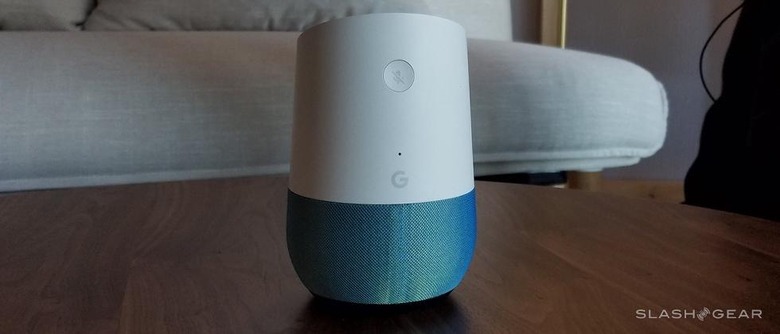The Big, Frustrating Thing Google Wifi Is Missing
Google Wifi may look like a shorter, squatter version of Google Home, but while the two smart home devices might share DNA, there's oddly little overlap. The mesh router, which began shipping earlier this month, doesn't stint on features to go with its boosted range. Despite that, there's still one big thing missing.
As I found in my Google Wifi review, there are some very good reasons for bringing the mesh router into your house. Not only did it offer better performance than mesh mainstay eero, it's easy to install and offers a range of useful management features like being able to temporarily shut off your kids' connection when it's dinnertime. All the same, I can't help but feel like Google has missed a trick along the way.
As well as the mesh networking system, I've also been living with Google's embodiment of its voice-controlled Assistant. The Google Home smart speaker is surprisingly capable, with support for answering questions, playing music, consulting your calendar, and controlling smart home devices like lights. True, it's early days still for the technology, but there's already an impressive amount of promise.
That makes the fact that Google Wifi doesn't have Google Home functionality a mystery to me. Google knew that its mesh routers would be placed in well-trafficked spots around the home; if even designed them so owners would be more likely to leave them out on show. Yet call out "Ok Google" to them and you won't get a reply.
It's not something the Google Wifi team hadn't considered. In fact, far from the idea of merging the two devices not having come up, it was a conscious decision not to include Google Home support, I was told. The fear was that by putting too much into what was still a fairly complex-to-understand product, Google might just end up confusing users more.

In a way, I can agree with that. There may be a few mesh networking products on the shelves at this point, but many people are still relying on their broadband-provider's router, and are a long way from understanding why they might want to switch that out for a multi-unit replacement. Finding out that it was also going to talk to you could muddy the waters further.
Even so, there's another option. Google could've integrated the Google Home hardware into Google Wifi but left it dormant, at least for the moment. Later down the line, when mesh is considered less bamboozling, it could've switched the Assistant on as a free bonus.
There's some precedence for that strategy, after all. One of the lesser-known features of Sonos' PLAY:5 streaming speaker is a microphone array, for instance. That's not currently active, but the engineers decided it was worth including "just in case" a purpose arose for it down the line. Given that Sonos and Amazon now have a deal to bring Alexa control to the streaming speakers, that foresight seems all the more admirable.
NOW READ: Living with Google Home
Although it'd be easy to dismiss Google's decision as a faintly Machiavellian one, encouraging people to buy multiple Google Home units if they want to spread the Assistant around their home, I'm not sure it's so clean-cut as that. After all, a firmware update pushed out around at the time of Google Wifi's release upgraded the older OnHub routers so that they could act as a mesh networking node. Google certainly didn't have to do that, and yet opted to so as to keep its early-adopters happy.
There's no escaping the fact that ubiquity is going to be key in winning the home voice assistant war. That's why Amazon's sub-$50 Echo Dot is so important, bringing the cost of equipping more and more rooms down to a realistic price. A Google-powered microphone within listening distance of wherever you are makes a lot more sense than one unit halfway across the house.
With that in mind, Google's decision seems more like a clumsy misstep than a cynical calculation to benefit its bottom line. Either way, though, it's frustrating. As missed opportunities go it may not be a tremendously serious one, but nonetheless it's a lost chance to put the Google Assistant front and center in the war of the virtual assistants.
